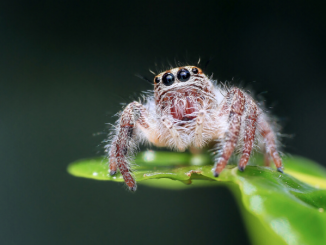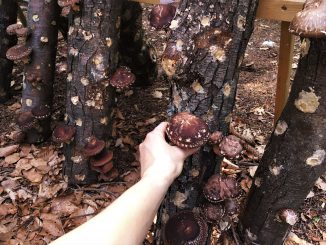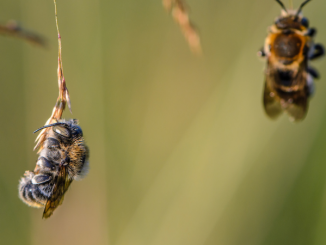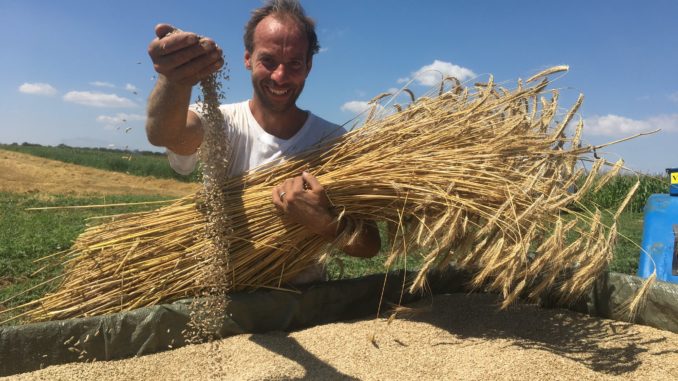
Czech organic farmer Libor Kožnar has won his yearlong battle with Agrofert, the agribusiness empire operating next to his small holding. As Libor told us in an interview in February, he lost the organic certification for his wheat due to fertiliser drift from an Agrofert sprayer – and took a hard hit to his earnings as a result. Agrofert is a multimillion euro conglomerate with ties to the Czech prime minister, currently under investigation in a conflict of interest case by the European Commission. Libor, when we last spoke to him, had run out of cash to pay his farmhands. Last week the case was finally settled. And while he is pleased with the outcome, Libor notes that the victory is bittersweet.
It’s been a long 12 months on Živá farma – the “living farm”, a smallholding in South Moravian wine country where Libor Kožnar grows organic wheat, fruit and vegetables. Only a year after Libor started farming on this land, Agrofert moved in next door. Fertiliser is big business for the Agrofert conglomerate (the clue’s in the name) and Libor’s new neighbours were soon spraying NPK nitrogen fertiliser dangerously close to his field, he told ARC2020 in an interview earlier this year. At one point the NPK drifted about five metres onto his field of organic wheat. As a result he lost his organic certification for the land parcel, and a sizeable chunk of his earnings on the contaminated crop.
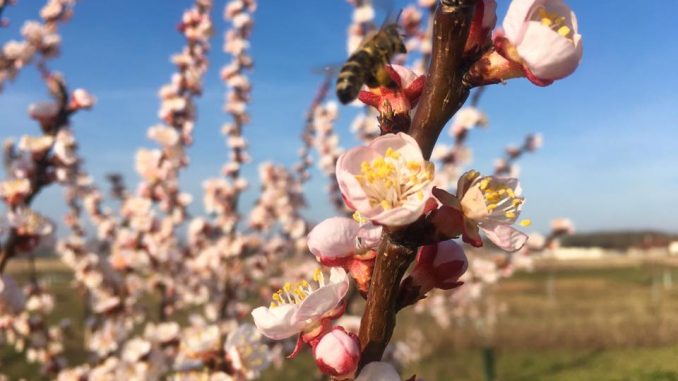
Final payout
Libor made a claim for compensation through the Czech agricultural inspection authority (ÚKZÚZ). He alleges that Agrofert embarked on a year-long campaign of aggressive and unfair pressure tactics to get him to concede to a minimal settlement. Instead of bowing to the pressure, he fought and managed to increase the initial offer of under 16% of damages to a final payout of 45% of the damages, Živá farma announced in a press release last week.
All along Agrofert refused to pay any compensation unless Živá farma first signed a secrecy clause. Ultimately Libor and his legal team succeeded in having this clause removed from the final settlement. Which leaves him free to share his story – a cautionary tale for the wider public.
Despite having lost the case, Agrofert continues to claim that windy conditions may well be to blame for the contamination of Libor’s wheat. “The GPS records show our tractor stayed more than 15 metres away from the boundary of the fields, while the spreading radius is 13.5 metres,” Agrofert’s press spokesperson Karel Hanzelka told news server Seznam. “It is also important that Mr Kožnar did not inform us in advance that his land was organically farmed. We apologized to Mr Kožnar and subsequently paid him compensation for the damage,” stated the spokesperson. He explained that Agrofert staff have been given training to prevent such an incident from reoccurring, and the sprayer has been fitted with a drift guard.
Bittersweet victory
The victory is bittersweet for Libor Kožnar. Agrofert was found by the agricultural inspection authority (ÚKZÚZ) to be in breach of the Czech Republic’s legislation on fertiliser. But because the case was settled out of court, the authority will stop short of imposing a fine, spokesperson Ivana Kršková told Seznam.
“The reality is that disputes like ours are settled out of court,” Libor notes. “Because we were forced into an out of court settlement, Agrofert will not be fined, and any other farmers who find themselves in the same situation will still lack the legal protection they deserve.” Secrecy clauses are also the norm, according to Libor. He had trouble finding a specialised lawyer who would dare to take on the case. He frames the issue in the context of his country’s totalitarian past: 30 years after the Velvet Revolution, the Czech Republic still lacks the legal clout to protect victims, he complains. Farmers and local authorities are battling stray sprayers every day of the year. “We see this victory as a small loss for all of us.”
Ivana Kršková, the spokesperson for the inspection authority, stated that farmers enjoy a number of legal protections under Czech law and can claim damages in the civil courts.
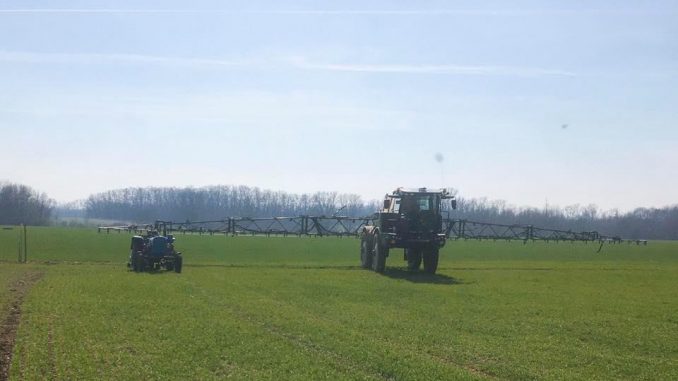
Agro-Terminator: the battle continues
Libor may have won this compensation case, but the saga continues. One literal battleground is the mud road that defines the border between the two farms. On March 19 he staged a “direct action” to block Agrofert machinery from ploughing the contentious terrain. According to Libor, Agrofert’s tractors blindly follow a route determined by GPS and LPIS — with scant regard for the true boundaries of the fields.
Libor describes his battle in epic terms: a victory for Mother Earth and the Living Farm over the “Agro-Terminator” and the “chemical world of robots”. As he concludes: “Živá farma will carry on doing what is right by Mother Earth”.
More on the Czech Republic
Trouble With The Neighbours: Living Next Door to an Agri-Giant
Bad Czechs and Balances: Commission Audit Confirms Czech PM in Conflict of Interest
Czech Republic | “No Forests, No Water, No Future” – Part I: Bugs in the Ecosystem
Czech Republic | “No Forests, No Water, No Future” – Part II: Moving On from Monocultures



